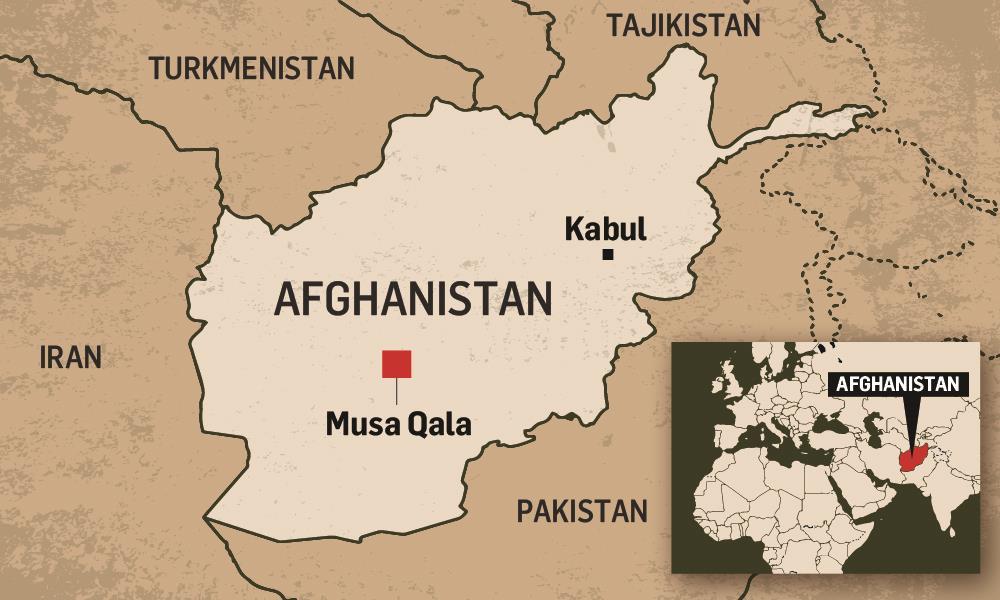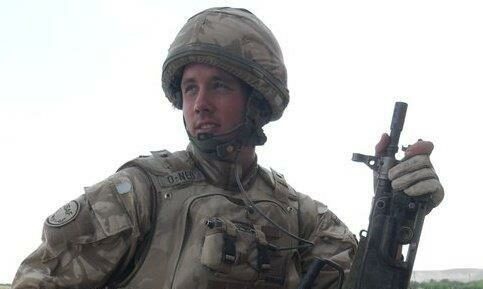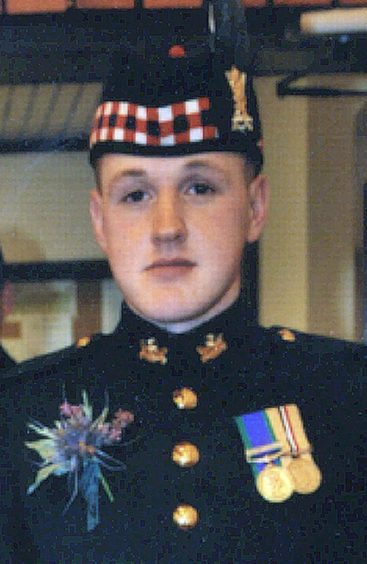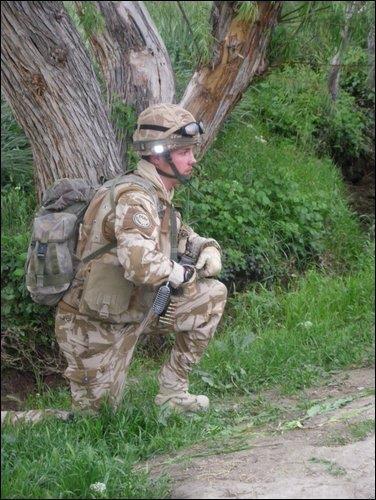Duncan Milne tried in vain to save his ‘battle buddy’ after he was shot in a firefight near Musa Qala in Helmand.
The brave Black Watch soldier rushed to the aid of pal Sean Binnie after he was killed by a round from an AK47 assault rifle on May 7, 2009.
Duncan, who has now left the Army, can never forget Musa Qala after that day.
The place has become sacred – a name that will forever be etched in the minds of an entire generation of soldiers from Tayside, Fife, Angus and the north-east of Scotland who served there with such distinction.
But now Musa Qala belongs to the Taliban – even before the official drawdown for British and American troops and the final chapter of the Afghan conflict which lasted 20 years.
Engaging with the enemy
Sergeant Binnie, from Kirkcaldy, was on a foot patrol with the Afghan National Army when he came under attack while trying to clear a compound of enemy fighters.
Grieving mother of Fife soldier Sean Binnie hopes son’s death will not be for nothing as troops leave Afghanistan
Duncan, 32, who served in Iraq, Northern Ireland and Afghanistan, said: “There was a real mixed day of emotions when Sean was shot.
“Up to that point of the tour, it had been quite quiet and there hadn’t been that much enemy activity.
“That firefight was the first time that things had really kicked off and there was a strange sort of excitement that we were getting to do what we had trained for – engage with the enemy.
It is hard to quantify what it was all for when you see what is going on now. We all maybe hoped that Afghanistan would be in a better place but you just think – what was the point?”
“We were all upset that we lost Sean and we felt guilty afterwards about having that feeling of excitement. Sean felt it too and we were all proud of being soldiers.
“It is hard to quantify what it was all for when you see what is going on now. We all maybe hoped that Afghanistan would be in a better place but you just think – what was the point?”
In Musa Qala today, the Taliban rule. Women are banned from leaving their homes without a male companion and local people are too scared to even ask about education for girls there.
Justice is handed down in mobile courts with adulterers jailed or killed and some repeat-offender thieves hanged in public. Bread, clothing and even the odd smartphone are dished out as gifts for fighters.
US President Joe Biden announced speeded-up plans to withdraw US troops and their Nato allies from Afghanistan.
The original plan had been slower with troops supposed to be out by the 20th anniversary of the September 11 terrorist attacks.
Negotiations between the US and the Taliban are ongoing, with the Afghan government often left on the sidelines, and likely to pick up the pieces of any peace deal.

The fate of Musa Qala carries great symbolism for all who fought in Afghanistan.
Some of the fiercest fighting happened there 10 years ago, before troops departed Helmand – the province in which Musa Qala stands – and Afghan troops left the area by 2016.
Sean was one of 23 soldiers that Britain lost in Musa Qala. US marines swept in with greater firepower in 2010.
At least four US troops died in the town, along with many Afghan security forces.
The collapse of Afghan government control, the lack of rights for women, and the stranglehold of the Taliban will leave many questioning this lost cause and the ultimate purpose of the sacrifices made.
While the capital Kabul and the centre of most main cities remain mostly under government control, vast swathes of rural Afghanistan are ruled by the Taliban.
‘We will remember his bravery’
At the inquest into Sean’s death in 2012, Lieutenant Colonel Simon Banton, commanding officer of the mentoring and liaison battle group, said: “At every moment he displayed professionalism and purpose. He was calm under fire and dedicated to the soldiers in his team.
“It is no surprise that when Sean was taken from us as he was leading from the front, setting the example and taking the fight to the enemy. We will remember his bravery.”
Afghanistan now is almost forgotten. As time goes by, it seems to slip out of people’s memory.”
Captain Oliver Lever described him as an individual of the “highest calibre” and added: “He died as he lived, in the thick of the action and totally committed.”
Duncan, who now lives in his hometown of Leeds, added: “Afghanistan now is almost forgotten. As time goes by, it seems to slip out of people’s memory.
“It is also maybe because the government didn’t cover themselves in glory there.
“But Sean and his fellow soldiers did.”
Scotland’s Forgotten War
Scotland’s Forgotten War is an in-depth investigation into one of the country’s longest running conflicts – the campaign in Afghanistan – and how it forever changed our local families and communities.
From Dundee, Angus and Fife to Aberdeen, Inverness and the Highlands, the combat thousands of miles away in Afghanistan has cast a long shadow over people’s lives in the last 20 years.
Read the full series:
- ‘I’ll see you on the other side’: How fallen Fife soldier Liam Tasker described his “fantastic life” in a letter written for his family in event of his death
- ‘What was my son killed for?’: Mother of tragic Fife soldier Liam Tasker fears her son’s sacrifice will be forgotten
- Grieving mother of Fife soldier Sean Binnie hopes son’s death will not be for nothing as troops leave Afghanistan
- Grandmother of Dundee soldier killed in Afghanistan says British troops ‘should never have been there in the first place’
- Mother of combat medic ‘angel’ says too many lives have been lost in Afghanistan conflict
- Dundee soldier left with shrapnel in his head after grenade attack in Afghanistan
- The Royal Regiment of Scotland: A history of Scotland’s super regiment
- Medals belonging to Perthshire soldier seriously injured in Afghanistan find new home at military museum
- ‘It completely changed my life’: Why journalist Stephen Stewart became a soldier after Black Watch assignment
The Impact team
- Words by Stephen Stewart
- Design by Cheryl Livingstone
- Graphics by Roddie Reid
- Photographs, video and audio by Jason Hedges, Mhairi Edwards, Drew Farrell, Blair Dingwall and Morven McIntyre.


